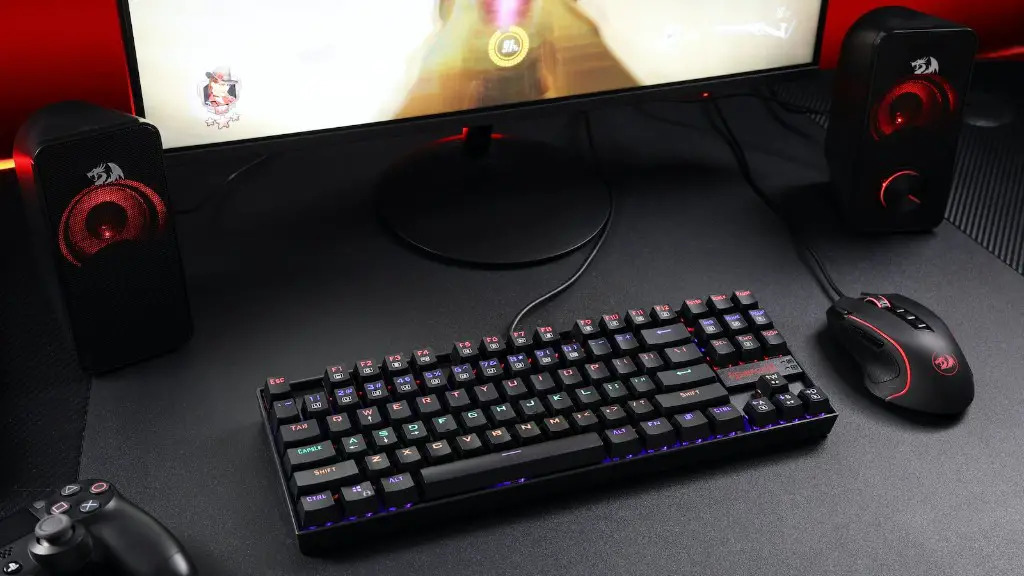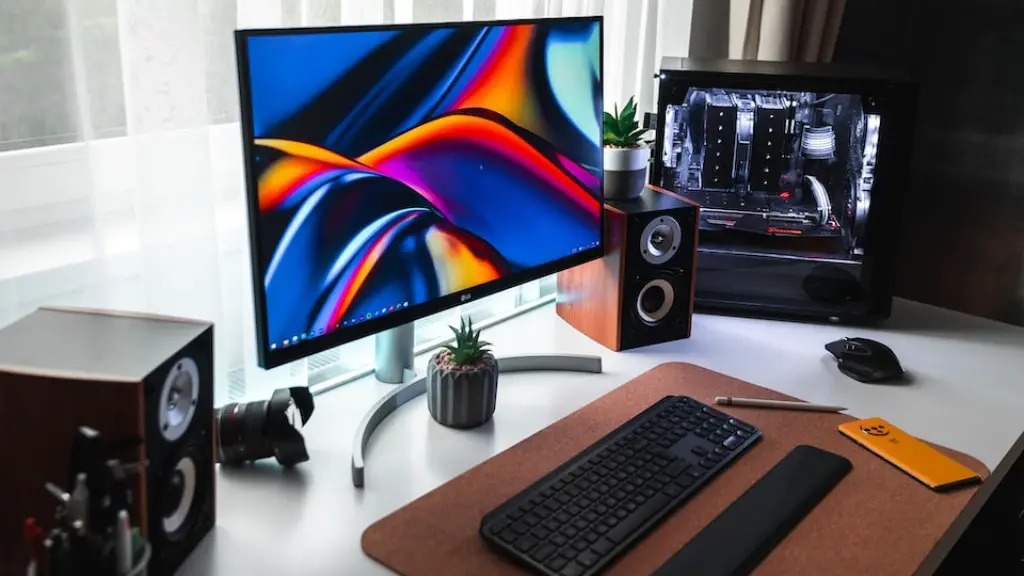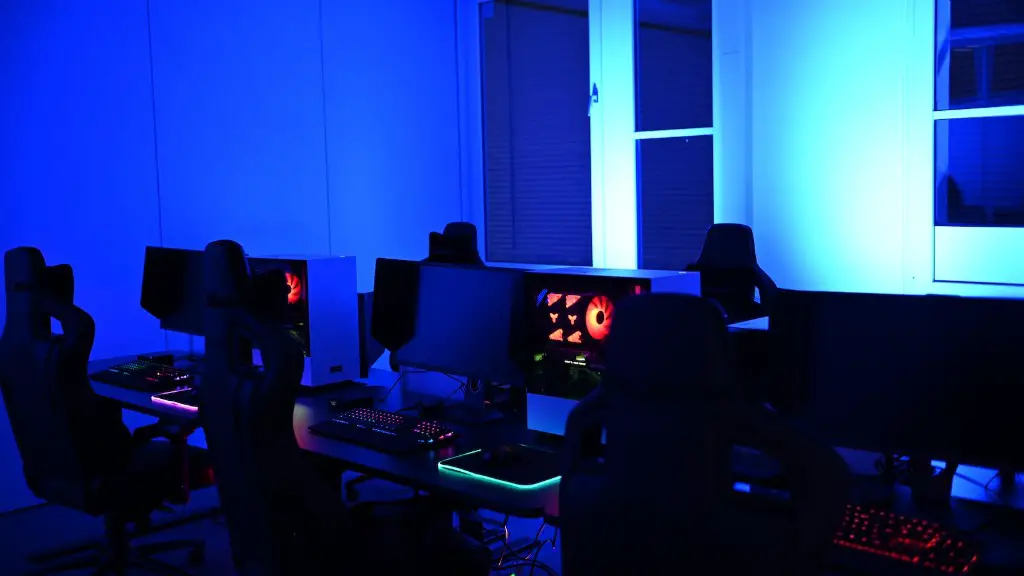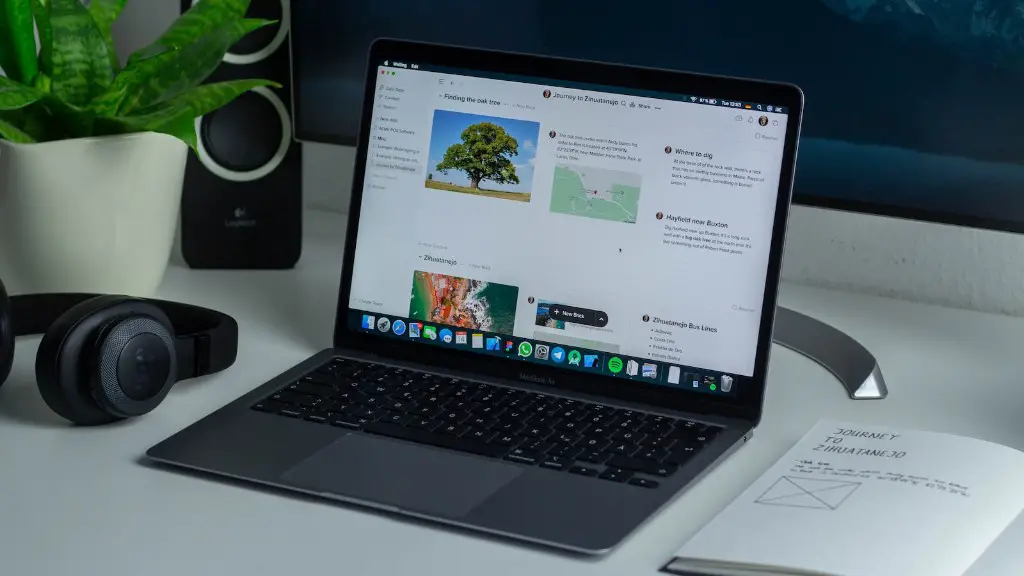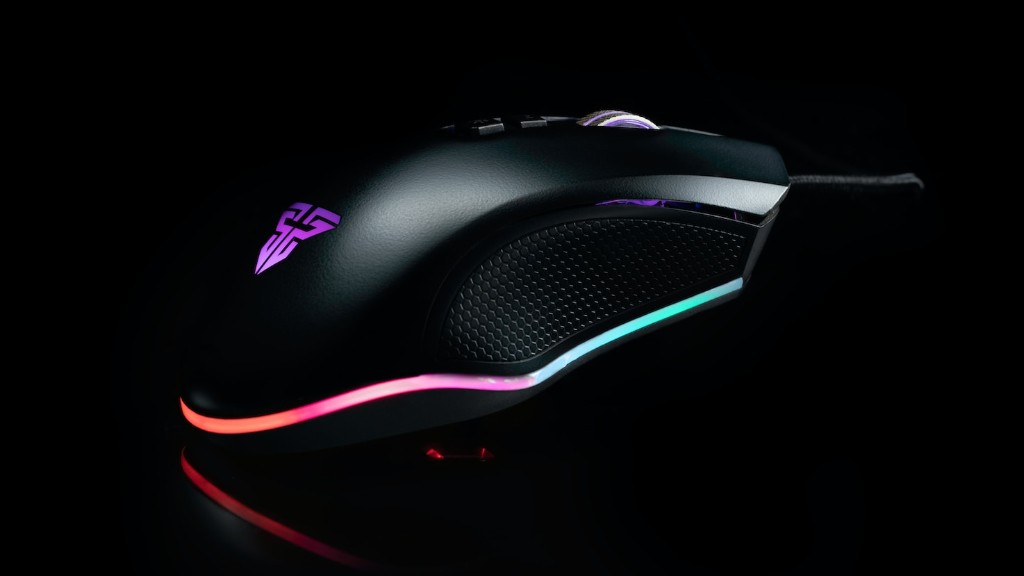Building a gaming PC can be a daunting task, especially if you’re new to the world of PC gaming. Understanding the exact specs you need for a gaming PC can make all the difference between a top-notch gaming experience and being disappointed with the performance. In this article, we’ll help you figure out what spec you need for a gaming PC.
To start, you need to choose the right hardware. You’ll need to consider things like your budget and the specific games you want to play. A good starting point is to select a CPU or processor and then pick the accompanying components. In the case of a gaming PC, you should pick a processor that is at least on the mid-range because it will provide a good balance between performance and cost. You need to make sure that your processor is compatible with the other components you intend to buy.
The next step is choosing a graphics card. For gaming, you want to invest in a graphics card that is powerful enough to run higher-end games. As a general rule of thumb, the more power and performance you can afford, the better the gaming experience will be. Remember that you don’t need to buy the most powerful graphics card available to have a good gaming experience; a mid-range card will usually do the trick.
You’ll also need to decide on a motherboard, RAM, storage, and other components. Generally, you’ll want to find a good balance between quality and cost. Even if you’re in a tight budget, stay away from the cheapest of components as they will slow you down and reduce the lifespan of your gaming computer. If you want the best gaming performance and extended longevity, stick to quality components.
Once you have all the components, the most important thing is to find a reliable power supply. Make sure that the wattage of the power supply is at least 20-30 percent higher than the needs of the components it’s powering. When it comes to power supply quality, make sure you’re going for a branded power supply that has a good track record.
Finally, you need to choose a suitable cooling system. A good cooling system will keep the CPU and graphics card at an optimal temperature so it doesn’t overheat. Even if you don’t overclock your CPU or graphics card, having a good cooling system will allow you to keep your hardware cooler and experience better performance.
All in all, selecting the specs for a gaming PC doesn’t have to be too complicated. It’s always helpful to do some research and find out exactly what specs you need based on the type of games you plan to play and your budget. With the right components, you should have no problem getting the best gaming experience.
Graphics Card
The graphics card is probably the most important component in any gaming PC. It’s the component that handles all of the in-game graphics processing, so you want make sure you get one that can handle the games you want to play. Generally, a mid-range graphics card that’s a year or two old should be enough to get a good gaming experience. If you want to play the latest games at high settings, then you should go for a high-end card as it will give you better performance.
When picking a graphics card, there are several other things to consider. For starters, you need to make sure that the GPU and the memory throughput are suitable for the games you plan to play. Next, consider the types of connections that the graphics card supports. Get a card that has plenty of ports so you can expand your setup. Finally, make sure the power requirements of the graphics card align with the power supply you intend to buy.
If your budget permits, you should also get a graphics card with a good cooling system. This is especially important if you plan to overclock your graphics card, as it will work at higher temperatures. A good cooling system will ensure that your card is kept at an optimal temperature and increase its lifespan.
Choosing the right graphics card is really important, as it will determine the type of gaming experience you get. If you choose wisely, you should be able to get a graphics card that will last you for years of gaming.
While you don’t need to spend a lot on a graphics card to get a great gaming experience there is no substitute for a powerful graphics card. Ultimately the choice is yours, but if you have the budget, it’s always good to get a high-end graphics card that will give you the best gaming performance.
Motherboard
Your motherboard is the backbone of your gaming PC. It connects all the components and provides power and data connections between the other components. When picking a motherboard, it is important to make sure it is compatible with the processor and other components you chose. You want to get a motherboard that has the right number of slots and ports for the components you want to install.
Another factor to consider is the type of motherboard you choose. If you plan to overclock your processor, for example, you should get a motherboard that is designed for overclocking. If you plan to upgrade your gaming PC in the future, then you should also get a motherboard that is designed for upgrades.
When selecting a motherboard, pay attention to the number of expansion slots available. This is important for adding components in the future, such as more RAM or a faster graphics card. Also consider the type of power socket needed for the motherboard, as well as the types of ports available.
Finally, remember that the cost of the motherboard depends on the type and quality of the components it offers. To get the best performance and longevity out of your gaming PC, invest in a quality motherboard that won’t let you down.
In the end, selecting the right motherboard for your gaming PC is all about finding a balance between performance, quality, and cost. Make sure the motherboard is compatible with your other components and offers enough expansion options for the future.
Storage and RAM
Apart from the processor and graphics card, you’ll also need to pick the best storage and RAM. Storage is important for storing your games, applications, and data. When choosing storage, you have three main types to choose from: hard drive, solid state drive, and hybrid drive. Hard drives are the cheaper option and have good storage capacity, but they’re slower than the other options. Solid state drives have good performance, but they’re more expensive. Hybrid drives are a good compromise between performance and capacity.
In terms of RAM, you should get at least 8GB for decent performance, and 16GB if you plan to do a lot of multitasking. You should also keep in mind the RAM speed; the higher the speed, the better the performance. You can buy RAM with higher speeds, but you’ll need to make sure that your motherboard is compatible.
When looking at RAM and storage, cost and capacity are important. RAM is relatively inexpensive and easy to upgrade, so you should go for the highest capacity and speed you can afford. As for storage, choose a drive with the right capacity and performance that meets your needs.
The right combination of RAM and storage can make all the difference for the performance of your gaming PC. Make sure the storage and RAM can handle all your games and applications, and that they are compatible with the other components.
In short, you should choose storage and RAM that can handle the games you plan to play and that are compatible with the other components. Invest in the higher capacity and speed if you can afford it, as it will give you better performance and longevity.
Case
Your gaming PC case is what houses all the components and allows you to connect them. It’s important to choose one that fits the other components and has adequate cooling if you plan to overclock your hardware. You can choose between mid-tower or full-tower cases, depending on how many components you plan to install.
When picking a gaming PC case, try to find one that allows for plenty of airflow. It should also have options for adding fans or water cooling components. It is also important to make sure that the case has enough space for the components you plan to install, such as the graphics card. Finally, pick a case with enough ports and slots for all your I/O devices.
The look and design of the case are also important. Most cases come in a variety of colors and designs, so there’s plenty to choose from. Some of them even have LED lights and other features that can give your gaming PC a unique look.
To sum it up, ensure that the gaming case is compatible with the other components, offers enough space and cooling, and has a design that you like. It should also have enough ports and slots for all your I/O devices.
At the end of the day, the look of the case is down to personal preference. Choose a case that fits your aesthetic and provides enough space, cooling and I/O for the components you’re installing.
Power Supply
The power supply is an often overlooked component in gaming PCs, but it is essential for running your hardware reliably. When picking a power supply, you need to make sure that its wattage output is enough to cover the hardware you intend to install. As a general rule of thumb, you should aim for a power supply that is higher than the needs of the hardware by 20-30%.
Another important aspect of power supply unit is its efficiency. Look for power supplies with an 80+ rating, as they are more efficient and cheaper to operate. Also pay attention to the type of cables the power supply comes with; if you want the best performance, go for flat cables.
Lastly, make sure you get a power supply from a reliable brand. You want to get one that has a good track record and plenty of reviews or feedback. Don’t be tempted to go for the cheapest power supply, as it will be more likely to fail.
To recap, when choosing a power supply for a gaming PC, make sure that the wattage is high enough and the efficiency is good. Also, get a reliable power supply from a trusted brand.
In conclusion, the power supply is one of the most important components for the performance and longevity of your gaming PC, so make sure you pick one that meets the power requirements of your hardware and is from a reliable brand.
